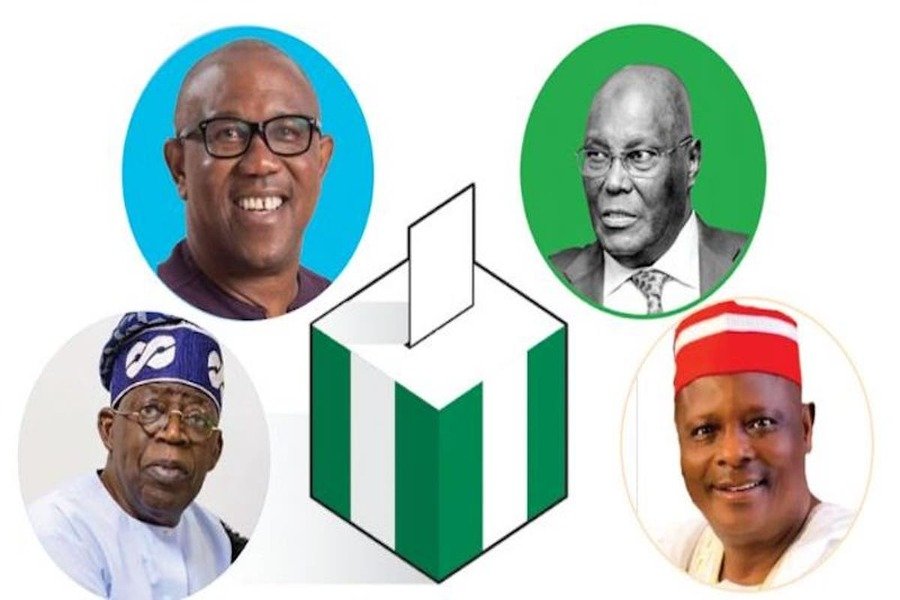After years of growing violence and suffering, Nigerians began voting Saturday for President Muhammadu Buhari’s successor.
News reporters at numerous sites around the nation noticed polling stations that were not ready by 8:30 a.m. (0730 GMT). In addition, reporters reported voting lineups without election officials in northern Kano, southern Bayelsa, Abuja, Benin, and some parts of the eastern states.
News Reporters in central Lagos, Awka, in southern Anambra State, and Maiduguri, in northeastern Nigeria, observed voting begin while other Lagos areas were delayed.
Buhari, a retired army general, is resigning after spending the maximum eight years permitted by the constitution but failing to restore peace and security to Nigeria, Africa’s top oil producer.
Two political veterans from the two main parties and a third party candidate with youthful voter support are the primary candidates in the most open election since 1999.
Almost 93 million voters are registered for the next president and National Assembly. One hundred seventy-six thousand six hundred voting booths were open from 8:30 to 2:30. (0730 GMT to 1330 GMT).
Votes will be counted and posted outside voting stations after polls close. The 36 states and Abuja will report their results five days after voting.
“I hope the next president alleviates widespread misery. Transportation and food expenses have risen, making it impossible “said Kano tea merchant Umar Abdullahi, waiting to vote.
The shooting of a senatorial candidate in the dangerous southeast area on Wednesday was the latest in a string of violent occurrences leading up to the election, a pattern repeated in past Nigerian elections.
The election comes amid a cash scarcity created by a failed effort to replace old banknotes with new ones, disrupting Nigerians’ everyday lives and leading to violence at banks and cash machines.
The incoming president will face severe inflation, poverty, energy shortages, an Islamic insurgency in the northeast, industrial-scale oil theft in the south, and widespread criminality.
To ensure election security, land borders were blocked, the military patrolled numerous states, and travel was limited.
Former Lagos governor Bola Tinubu, 70, of the governing All Progressives Congress, former vice president Atiku Abubakar, 76, of the major opposition Peoples Democratic Party, and former Anambra State governor Peter Obi, 61, of the Labour Party are the leading candidates to follow Buhari.
Tinubu and Atiku, renowned in Nigeria, are political heavyweights with decades of networking and large campaign funds. Tinubu, a southwest Yoruba, and Atiku, a northeast Fulani, are Muslims.
Obi, a Christian from the Igbo ethnic group, has less of a political machine but has utilized a smart social media campaign to excite young voters, who nickname themselves “Obidients.”
Nigeria has a history of electoral fraud and bloodshed, but its polls have improved.
The Independent National Electoral Commission (INEC) claims it has incorporated new technology and processes to guarantee this election is free and fair, including a Bimodal Voter Accreditation System (BVAS) that will identify voters using biometric data.
INEC bans mobile phones in polling booths because people have taken images of their ticked ballot papers to show candidates who have offered to pay for their votes.
“Elections will be fair. It was new. Computer, fingerprint, and picture. No cheating now “
Lagos grocery store owner Mohammed Aisha voted.
Despite such safeguards, analysts cautioned that a cash scarcity might render hard-pressed individuals vulnerable to vote-buying by politicians. A gasoline deficit could make it difficult for INEC to send employees and equipment to all locations.


